Health
Doctors under fire as patients’ claims of ‘medical gaslighting’ go viral: Need to ‘be our own advocates’
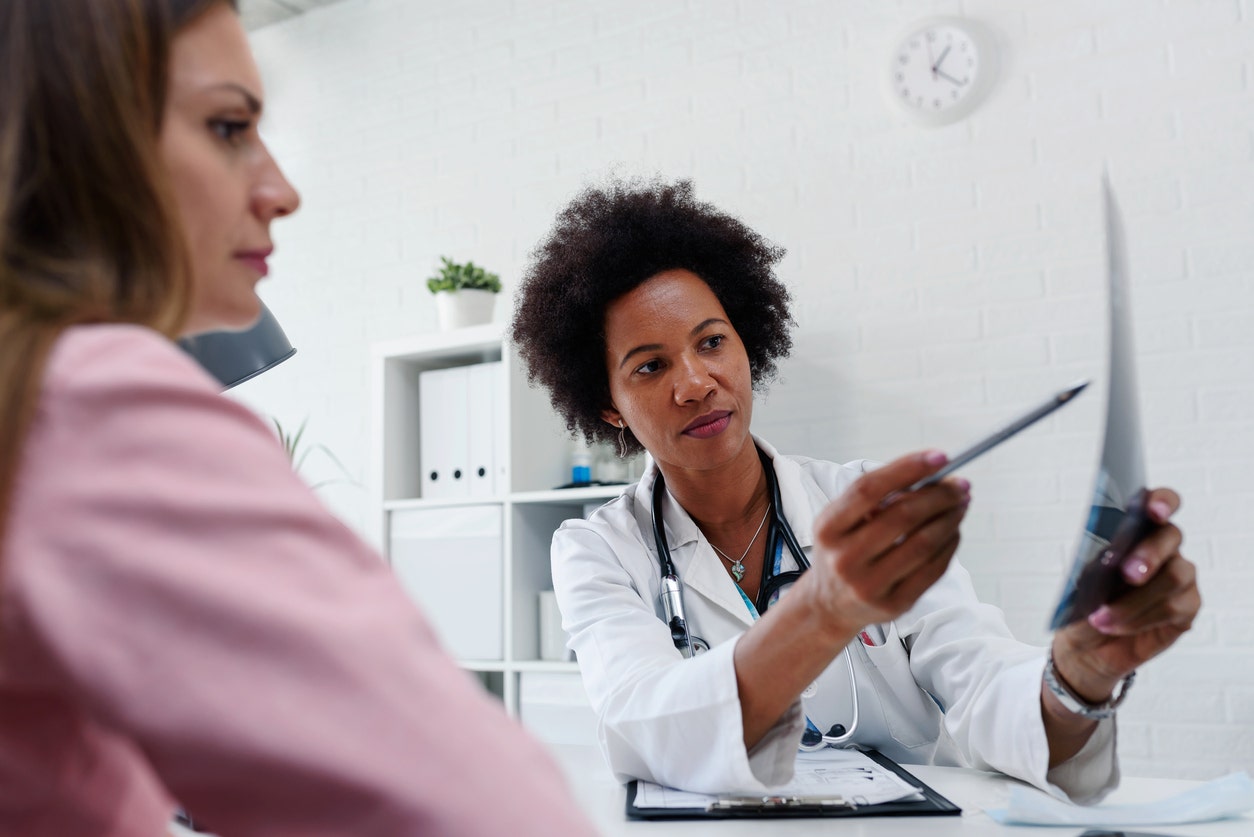
Patients who don’t feel heard by a health care professional are finding a voice on social media — with the hashtag #medicalgaslighting now garnering more than 226 million views on TikTok.
“Medical gaslighting” is a term used to describe the situation in which patients — often young individuals, women and minorities — feel their symptoms are inappropriately dismissed or labeled as psychological when they go to see a doctor.
The term “gaslighting” originates from a 1938 play about a diabolical husband who plots to drive his wife insane through treacherous mind games.
TINA TURNER SUFFERED FROM KIDNEY DISEASE BEFORE HER DEATH: ‘I HAVE PUT MYSELF IN GREAT DANGER’
In 1944, MGM released the psychological thriller “Gaslight,” starring acclaimed actress Ingrid Bergman, who won an Oscar for her convincing portrayal of an abused wife.
She discovers that her husband was planning to institutionalize her so that he could collect on her inheritance by driving her insane — in part by dimming the gaslights in the home while tricking her to believe it was in her imagination.
“When it comes to our personal health, we should all feel confident and empowered to be our own advocates,” said one health care professional. (iStock)
“When it comes to our personal health, we should all feel confident and empowered to be our own advocates,” Sylvia Kang, CEO and founder of health care company Mira in San Ramon, California, told Fox News Digital.
Mira helps women conceive with a home fertility tracker that provides personalized insights into menstrual cycles to maximize the chances of getting pregnant.
Some 65% of American women felt that their doctor dismissed, ignored or minimized the severity of their medical concerns.
Approximately 65% of American women felt that their doctor “dismissed, ignored or minimized the severity of their medical concerns,” according to a recent nationwide survey commissioned by Mira.
EXERCISE OF ANY AMOUNT COULD HELP INCREASE PAIN TOLERANCE, NEW STUDY FINDS
The survey also found that female millennials felt especially impacted, with 72% feeling ignored or dismissed by doctors, per a press release on Mira’s website.
Medical gaslighting is not new
In 1977, the U.S. Food and Drug Administration (FDA) recommended that reproductive-age women be excluded from early clinical drug trials.
There was a concern that the studies could potentially harm the fetuses of pregnant women and that hormonal changes during pregnancy would complicate the study’s results, according to the National Institutes of Health (NIH).
During this time, few females worked in medicine or research — and many women thought their needs were not a priority in scientific research, per the Office of Research on Women’s Health.

The experiences of medical gaslighting “can erode trust in medical professionals, create feelings of self-doubt and lead to delays in receiving proper care,” a health care professional told Fox News Digital. (iStock)
The policy also recommended excluding single women, those who used contraception and those whose husbands had a vasectomy, per the NIH.
“Medical gaslighting by health care providers can have a devastating impact on women,” Shawana S. Moore, a board-certified women’s health nurse practitioner who specializes in women’s health in Atlanta, Georgia, told Fox News Digital.
Research shows there’s still a gender gap in how providers are evaluating women compared to men.
“These experiences can erode trust in medical professionals, create feelings of self-doubt and lead to delays in receiving proper care.”
A 1993 law now mandates that medical research funded by the NIH include women and minorities — but 30 years later, research shows there’s still a gender gap in how providers are evaluating women compared to men.
A 2019 Danish study found that, with the exception of osteoporosis, women were on average diagnosed four years later for over 700 diseases.
“Experiencing medical gaslighting throughout my fertility journey was deeply disheartening, especially as a woman with hormonal imbalance and a higher BMI [body mass index] who sought to be well-informed and actively participate in my own care,” Kristy P., 33, a member of the Mira community who lives in Orlando, Florida, told Fox News Digital.
She said she felt “disregarded and frustrated” when her providers immediately pushed for invasive procedures such as in vitro fertilization (IVF) — solely based on her weight — rather than considering alternative treatment options based on her individual circumstances.
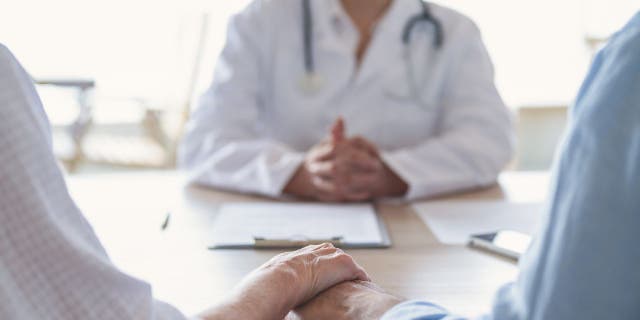
Some experts suggest bringing a loved one along to a medical appointment to avoid feeling discounted by health professionals. (iStock)
One example of how some providers may not consider differences in symptoms between genders has to do with chest pain.
Subtle chest pain symptoms
The classic symptoms of a heart attack are uncomfortable chest pain or chest pressure — sometimes described as a squeezing sensation that radiates to one or both arms — which lasts for more than a few minutes, according to the American Heart Association.
Many people assume heart disease is only a men’s health issue, but it is actually the No. 1 killer of American women.
“But women may experience other symptoms that are typically less associated with heart attack, such as shortness of breath, nausea/vomiting and back or jaw pain,” the association noted on its website.
LIFE-CHANGING COLD THERAPY HELPS PENNSYLVANIA MOM WITH AWFUL BACK PAIN: ‘COULD PICK UP MY DAUGHTER’ AGAIN
Some women who experience a heart attack may complain of pressure in the upper back that is described as a “squeezing” sensation or a feeling that a rope is being tied around them, the association added on its website.
Many people assume heart disease is only a men’s health issue, yet it’s actually the No. 1 killer of American women.
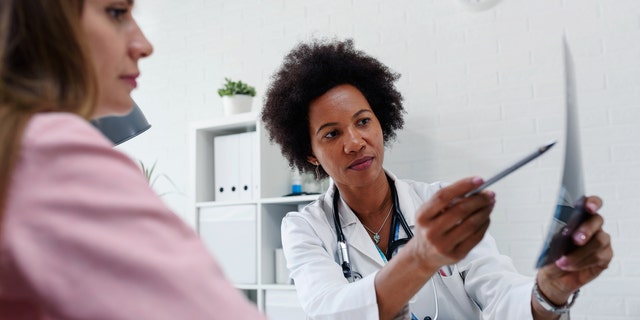
More women die from heart disease compared to all types of cancer combined, according to the American Heart Association. (iStock)
However, only slightly more than half of women in the U.S. are aware of this, according to the Centers for Disease Control and Prevention (CDC).
More women die from the condition compared to all types of cancer combined, per the American Heart Association.
‘A powerful reminder’
Some experts suggest bringing a loved one along to an appointment to avoid feeling discounted by health professionals.
“Women have the power to speak up and challenge dismissive attitudes in health care to receive the care they deserve,” Moore said.
Doctors spend years in medical school in the U.S. to master why a patient is coming to see them — what medical professionals refer to as the “chief complaint.”
“Women have the power to speak up and challenge dismissive attitudes in health care to receive the care they deserve.”
By simply talking to and examining patients, doctors can make the proper diagnosis without performing any further testing in 80% of cases, according to multiple studies.
Many doctors work hard to follow this practice — but some patients feel a subset can do better.
“My story serves as a powerful reminder that weight should not be a barrier to compassionate and personalized care,” said the Orlando woman.
Kang of Mira in California is recommending that women become their own health advocates.
CLICK HERE TO SIGN UP FOR OUR HEALTH NEWSLETTER
“As women are diagnosed an average of four years later than men, there is no shame in asserting yourself by asking plenty of questions, expressing any concerns and seeking second opinions when your gut tells you something is off,” she said.

Health
Your 2024 Gemini Season Horoscope: What’s in Store for You, Based on Your Sign
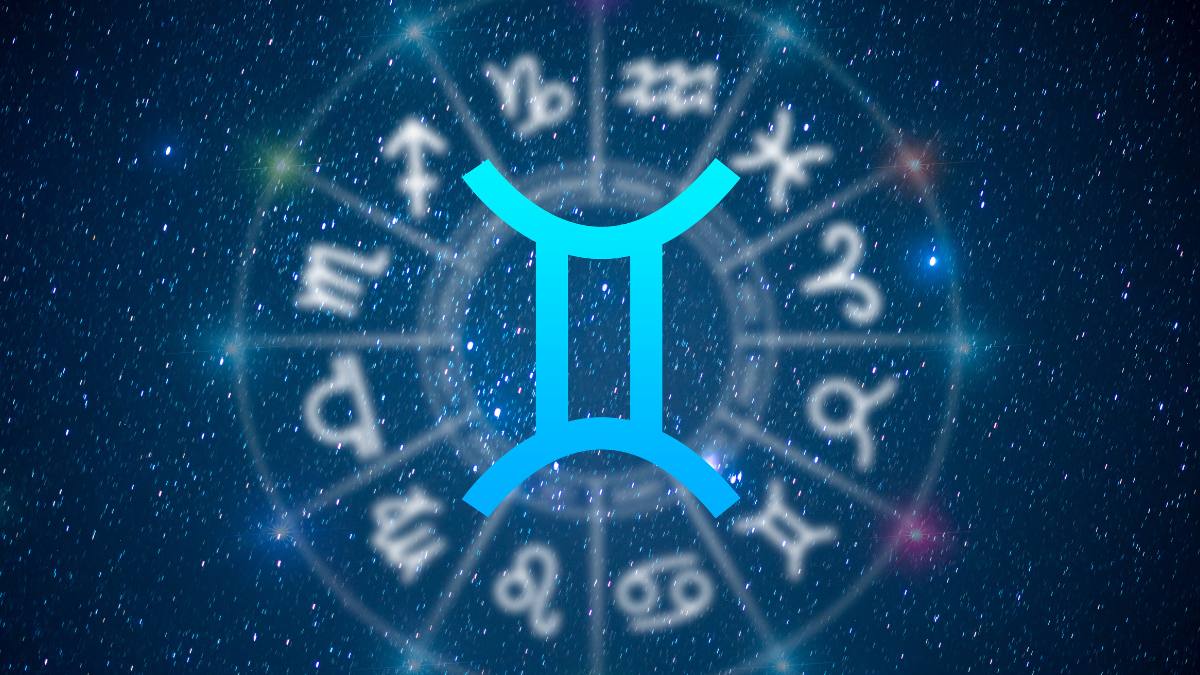
Sign Up
Create a free account to access exclusive content, play games, solve puzzles, test your pop-culture knowledge and receive special offers.
Already have an account? Login
Forgot your password?
Get back to the Sign In
Use left and right arrow keys to navigate between menu items.
Use escape to exit the menu.
Health
8 of the most important health stories this week, in case you missed them
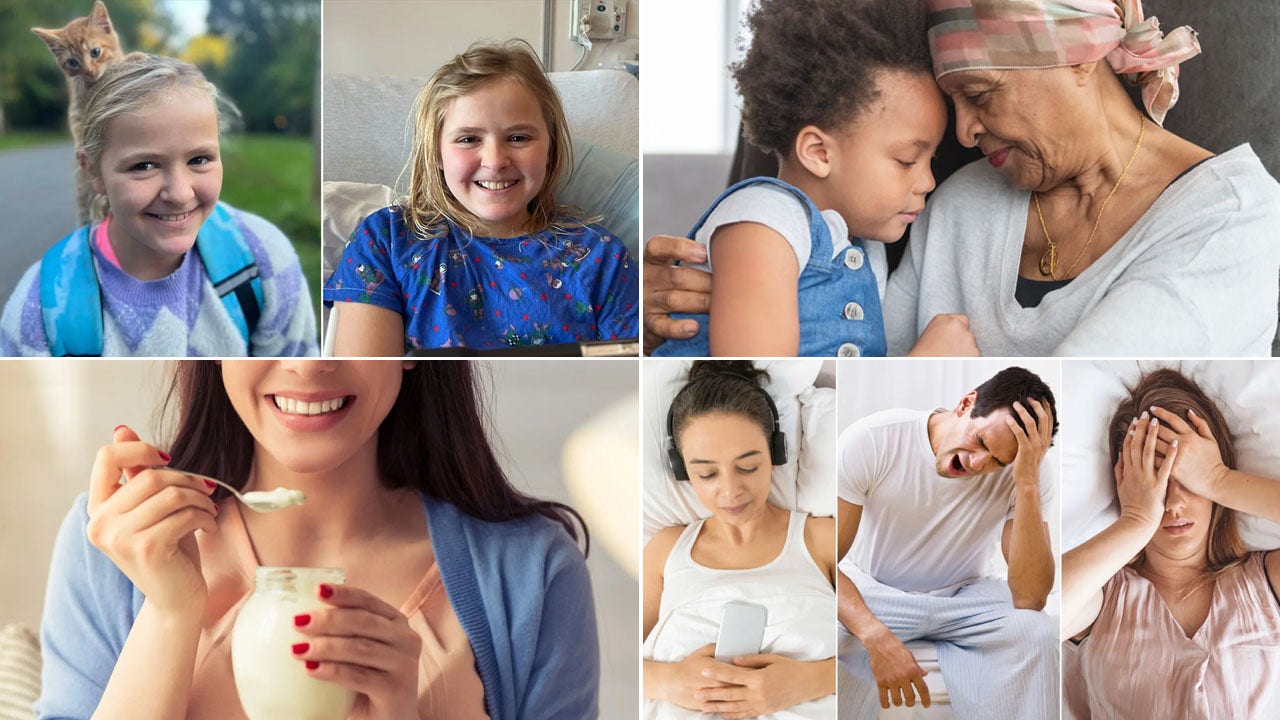
Fox News Digital publishes a range of health and wellness pieces all week long to keep you in the know.
Health coverage includes articles on new medications, mental health challenges, groundbreaking resources, personal medical dramas and more.
In case you missed them, here are a few of our biggest health stories from this week.
CLICK HERE TO SIGN UP FOR OUR HEALTH NEWSLETTER
These are just a few of what’s new.
See a full list of recent health pieces at http://www.foxnews/health.
1. Mom seeks ‘perfect match’ to help daughter
A 10-year-old girl in Pennsylvania is in dire need of a bone marrow transplant — and her mother is on a mission to find the perfect match. Fox News Digital talked to Ashleigh Walter about the importance of joining the donor registry. Click here to get the story.
Lani Walter, 10, is in dire need of a bone marrow transplant — and her mother is on a mission to find the perfect match for her. (Ashleigh Walter)
2. Many nurses ready to jump ship
More than half of surveyed nurses say they’re likely to leave the profession. Find out the source of their frustration — and what they say needs to change in the field. Click here to get the story.
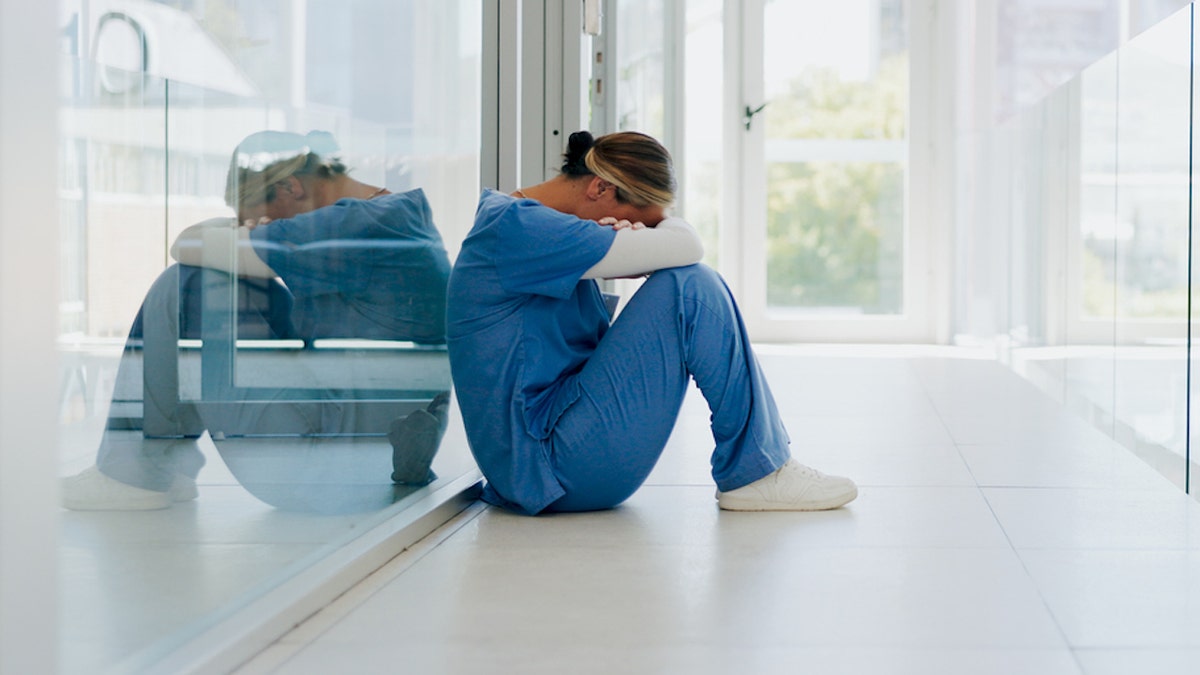
More than a third of the nurses who took part in a recent survey of 1,155 nurses across the U.S. say they are “extremely likely” to change jobs. (iStock)
3. Orangutan heals its own wound in the wild
An orangutan in a protected Indonesian rainforest site who sustained a facial wound treated the injury himself, researchers say. Learn the amazing story of how he did it. Click here to get the story.

An orangutan who sustained a facial wound, shown on the left, treated it himself, according to a study published in the journal Scientific Reports earlier this month. In the image on the right, his scar is just barely noticeable. (Armas Fitra & Safruddin & TNGL & KLHK & MPI & UNAS & YEL)
4. Simple sleep hack could help you drift off
For those who are struggling to get enough sleep, the ABCs may be the key to getting more Zzzs. Sleep experts chimed in on why this method works. Click here to get the story.

“You can’t force sleep — and thinking about falling asleep or about how you can’t fall asleep is a surefire way to delay it,” an expert said. (iStock)
5. Experts offer tips on grieving during Mother’s Day
For those who are experiencing their first Mother’s Day after losing a mom, a mental health expert offered five tips for navigating the difficult emotions. Click here to get the story.

For those who have lost their mothers, Mother’s Day can be a difficult day to manage. A certified grief support specialist (not pictured) shared insights and help for coping. (iStock)
6. Should seniors get screened for breast cancer?
The official guidance is for women ages 40 to 74 to get mammograms every other year, but some experts call for the recommendations to include older women as well. Click here to get the story.
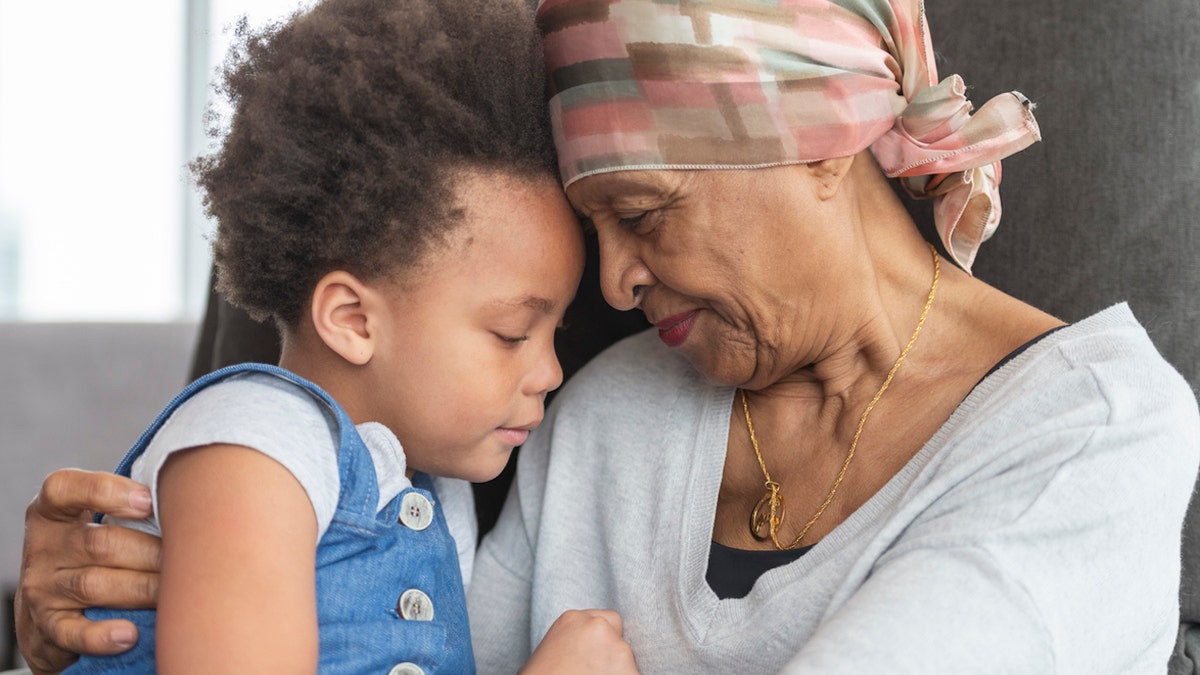
One of the main reasons that women over age 74 were excluded is that the age group was not invited to take part in clinical trials. (iStock)
7. Global bacterial outbreak sparks concern
Cholera, a bacterial disease typically spread by food and water, continues to surge around the world. As vaccines remain in short supply, experts warned about the global risk. Click here to get the story.

Fox News Digital’s health coverage includes articles on new medications, mental health challenges, groundbreaking resources, personal medical dramas and much more. (Ashleigh Walter; iStock)
8. Common snack could slash diabetes risk
Eating yogurt regularly could reduce the risk of developing type 2 diabetes, according to the FDA. Nutritionists weighed in on the potential benefits and also urge caution. Click here to get the story.
For more Health articles, visit www.foxnews.com/health.
Health
Common cooking ingredient could reduce dementia mortality risk, study suggests
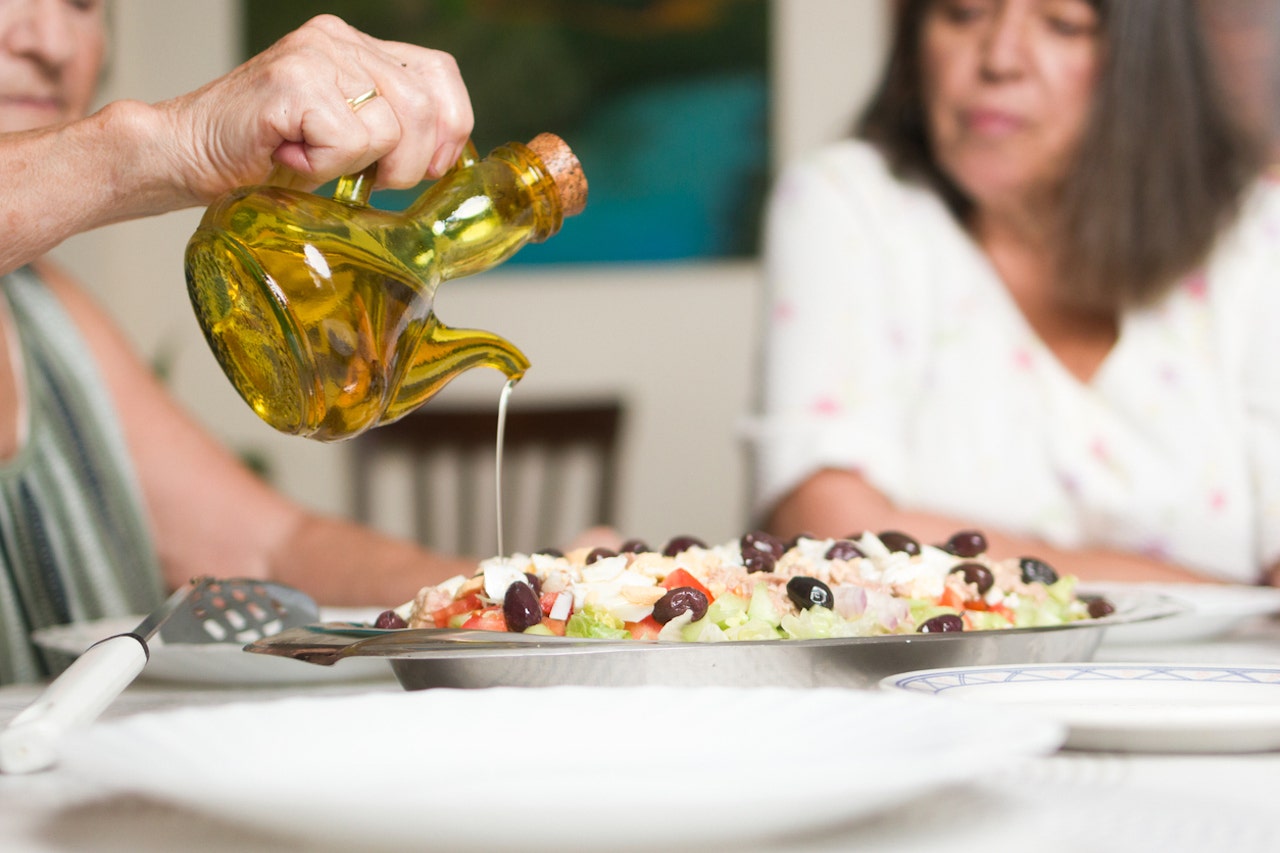
Infusing more olive oil into your diet could pay big dividends for cognitive health and longevity, a new study suggests.
Researchers from the Harvard T.H. Chan School of Public Health and other universities analyzed population health data for more than 92,000 adults over a 28-year period. The participants’ average age was 56 and none of them had heart disease or cancer.
They found that people who consumed over 7 grams a day of olive oil had a 28% lower risk of dementia-related death compared to those who rarely or never consumed it.
EATING ONE POPULAR FRUIT COULD HELP REDUCE YOUR CHANCES OF DEVELOPING DEMENTIA, STUDY FINDS
This was the case regardless of the quality of the person’s diet.
The dietary data was gathered from questionnaires; people reported their frequency of olive oil consumption.
Researchers then compared that to the rate of dementia death.
Adding more olive oil to your diet could reduce your risk of dementia-related death, a new study suggests. (iStock)
“Substituting olive oil intake for margarine and mayonnaise was associated with lower risk of dementia mortality and may be a potential strategy to improve longevity free of dementia,” the researchers wrote in the study findings.
THESE ARE THE 8 BEST FRUITS FOR YOUR HEALTH, ACCORDING TO NUTRITIONISTS
“These findings extend the current dietary recommendations of choosing olive oil and other vegetable oils to the context of cognitive health and related mortality.”
The benefits of consuming olive oil come from its antioxidant properties, according to Lindsay Allan, registered dietitian nutritionist and owner of Back in Balance Nutrition, LLC, in Tampa Bay, Florida.
Allan was not involved in the Harvard study.
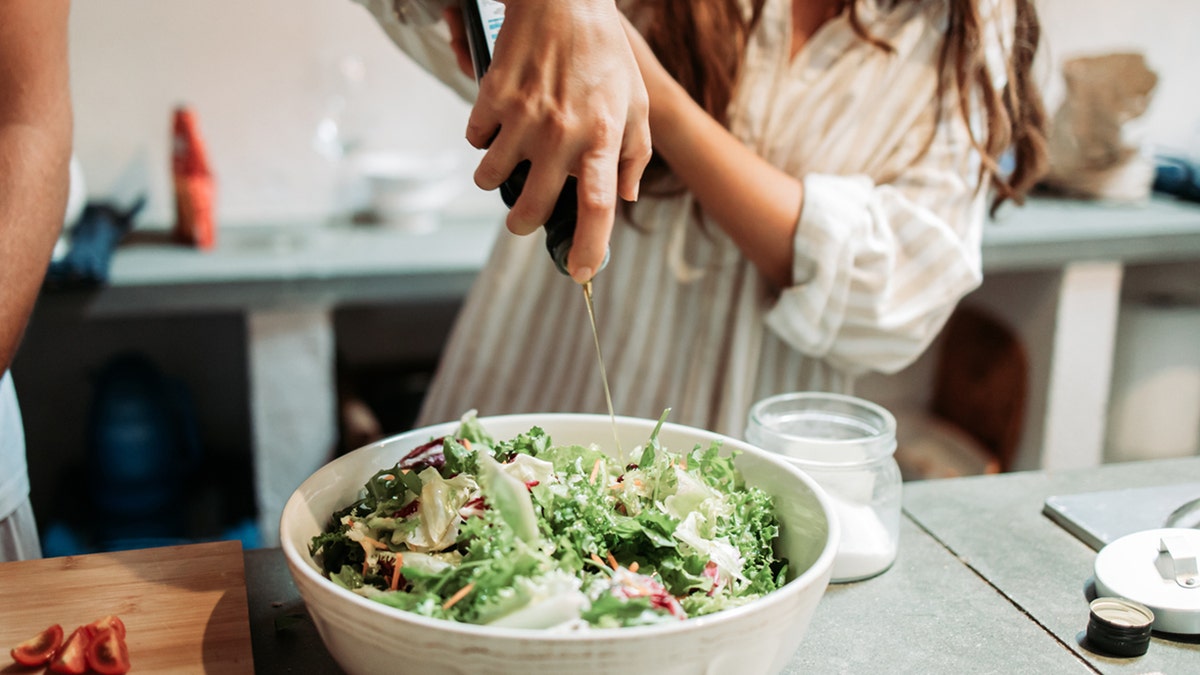
The benefits of consuming olive oil come from its antioxidant properties, a nutritionist pointed out. (iStock)
“Oxidative stress is one of the main root causes of disease — this is why we always talk about consuming plenty of antioxidant-rich foods that have the capability to ‘quench’ those free radicals or ‘oxidants’ that are causing damage to our cells,” she told Fox News Digital.
“Extra virgin olive oil is one of those foods that are super high in phenolic compounds, which act as potent antioxidants in the body,” she continued.
MEDITERRANEAN, MIND DIETS SHOWN TO REDUCE SIGNS OF ALZHEIMER’S IN THE BRAIN, STUDY FINDS
“So it makes sense that consuming olive oil frequently — as opposed to those highly oxidized, processed seed oils that we find all over grocery stores — would mitigate the damage to the neurons caused by oxidative stress.”
Tanya Freirich, a registered dietitian nutritionist in Charlotte, North Carolina, who practices as The Lupus Dietitian, was not involved in the study but commented on the health benefits of olive oil.
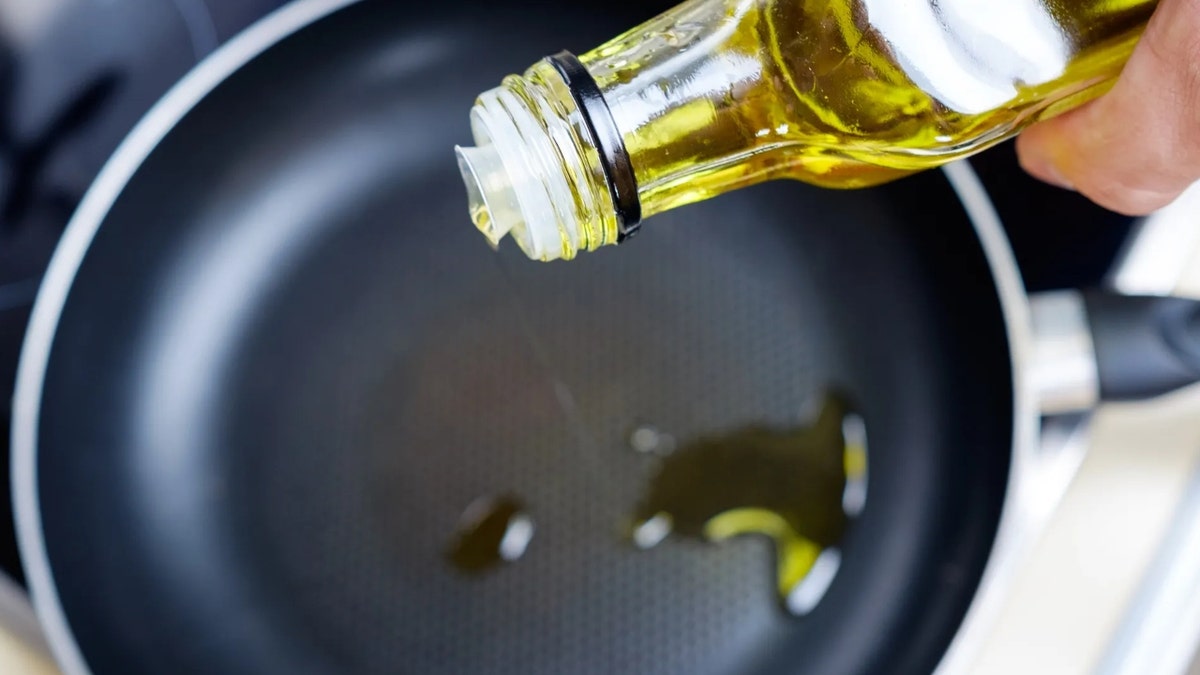
“A higher omega-3 intake is known to reduce dementia and cognitive decline,” said a registered dietitian nutritionist. (iStock)
“Olive oil is a great source of omega-3 fatty acids, a nutritious fat that many people don’t consume enough of,” she told Fox News Digital.
“A higher omega-3 intake is known to reduce dementia and cognitive decline. It’s great to see the association between consuming olive oil, a great source of omega 3s, and a reduced risk of dementia.”
“It would be wonderful if a particular food could delay or prevent Alzheimer’s disease, but we do not have scientific evidence that these claims are true.”
Experts from the Alzheimer’s Association noted that the study had “significant limitations.”
“This study looked at people’s health records, death records, diet, and food frequency questionnaires to try to identify possible connections between specific food intake and risk of dementia-related death,” noted Rebecca M. Edelmayer, PhD, senior director of scientific engagement at the Alzheimer’s Association.
“It is not an intervention study where some people ate olive oil and some didn’t — which is the ‘gold standard’ for the way a treatment clinical trial is conducted. That means this study can show an association or connection between two things, but can’t prove cause and effect.”
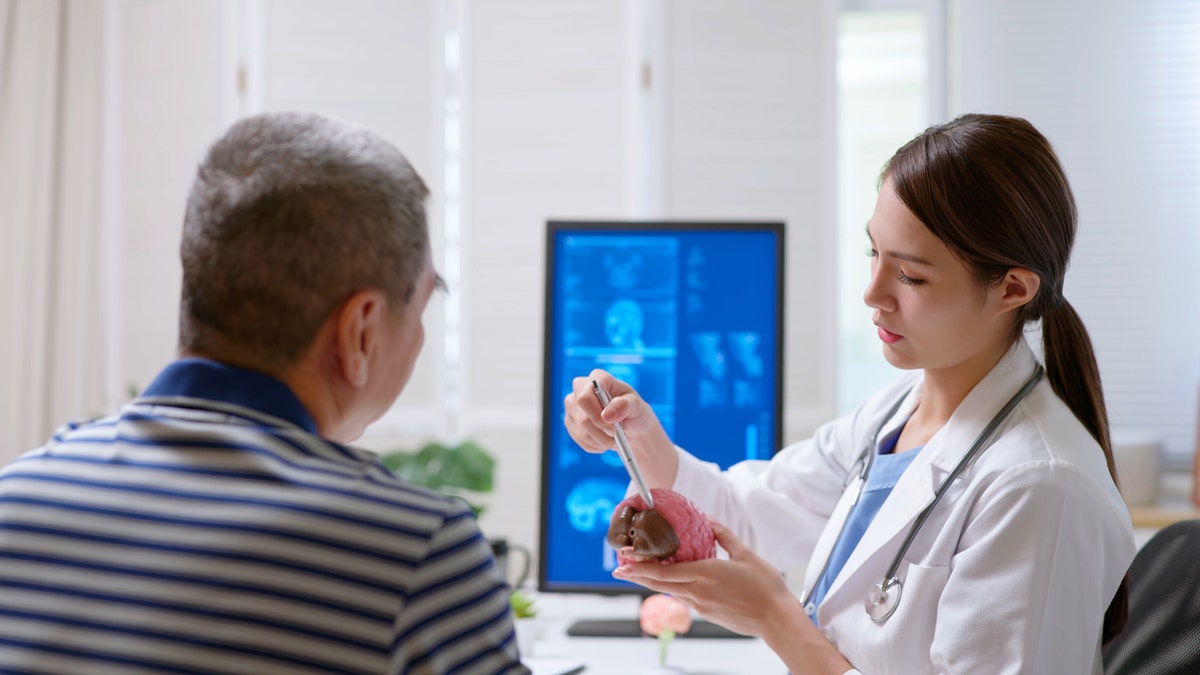
Many factors beyond diet contribute to dementia risk, experts agreed. (iStock)
Edelmayer also noted that death records may not be a reliable determination of dementia mortality, because dementia and Alzheimer’s disease are often “underreported” as a cause of death.
There is also a need for studies among wider populations, Edelmayer added, as this one mainly focused on non-Hispanic White people.
CLICK HERE TO SIGN UP FOR OUR HEALTH NEWSLETTER
“There is good, quality evidence that consuming more olive oil and similar vegetable oils and less animal fats has health benefits, in particular heart health benefits,” she said.
“It would be wonderful if a particular food could delay or prevent Alzheimer’s disease, but we do not have scientific evidence that these claims are true. We need randomized controlled clinical trials to evaluate whether any foods have a scientifically proven beneficial effect.”
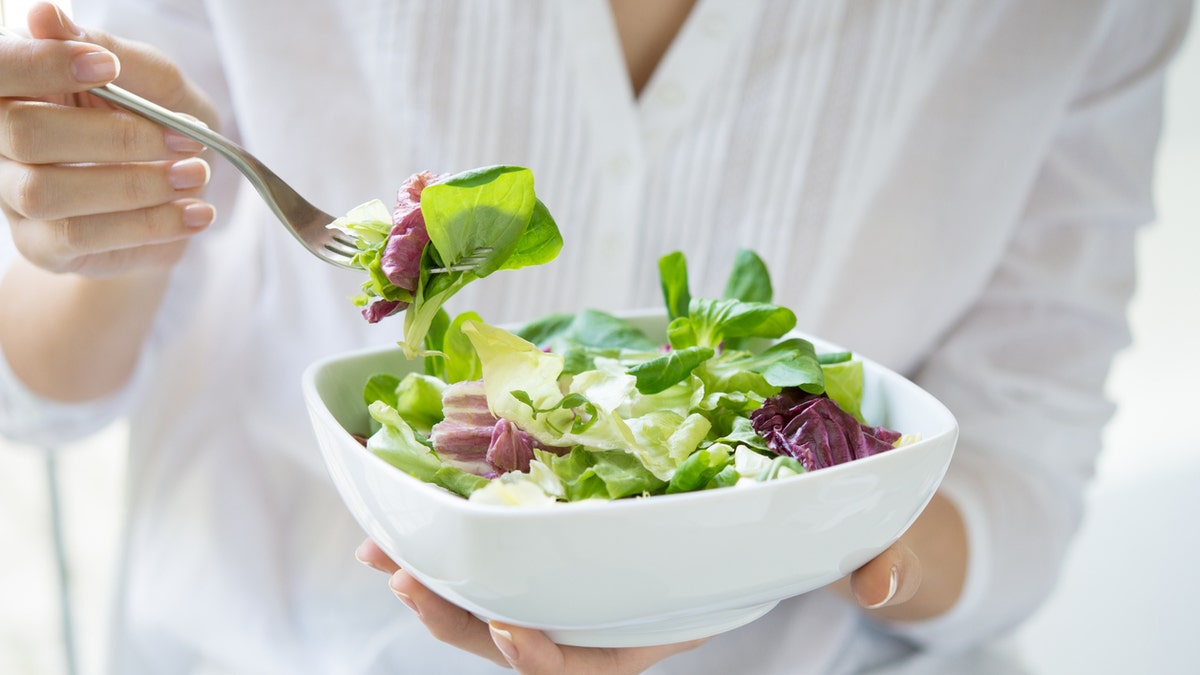
“In addition to olive oil intake, people should still aim to exercise regularly … and consume other healthy foods for the most protection against developing dementia,” a nutritionist advised. (iStock)
Experts agree that a multitude of factors come into play when assessing dementia risk.
“In addition to olive oil intake, people should still aim to exercise regularly, keep up with hobbies that stimulate their mind, and consume other healthy foods for the most protection against developing dementia,” Frierich said.
ALZHEIMER’S RISK IS REDUCED AMONG WOMEN WHO FOLLOW THE DASH DIET IN THEIR 40S, STUDY FINDS
“Additionally, other habits like smoking and alcohol use or health conditions like diabetes, cardiovascular disease and high cholesterol can contribute to the development of dementia.”
It’s also important to maintain regularly scheduled doctors’ appointments to manage other health risks, according to the experts.
Fox News Digital reached out to the study authors for additional comment.
For more Health articles, visit www.foxnews.com/health.
-

 Education1 week ago
Education1 week agoVideo: President Biden Addresses Campus Protests
-

 Movie Reviews1 week ago
Movie Reviews1 week agoSabari Movie Review: Varalaxmi Proves She Can Do Female Centric Roles
-

 World1 week ago
World1 week agoEuropean elections: What do voters want? What have candidates pledged?
-

 News1 week ago
News1 week agoWhistleblower Joshua Dean, who raised concerns about Boeing jets, dies at 45
-

 Politics1 week ago
Politics1 week agoAustralian lawmakers send letter urging Biden to drop case against Julian Assange on World Press Freedom Day
-

 World1 week ago
World1 week agoBrussels, my love? Champage cracked open to celebrate the Big Bang
-
News1 week ago
A group of Republicans has united to defend the legitimacy of US elections and those who run them
-

 Politics7 days ago
Politics7 days agoHouse Dems seeking re-election seemingly reverse course, call on Biden to 'bring order to the southern border'














